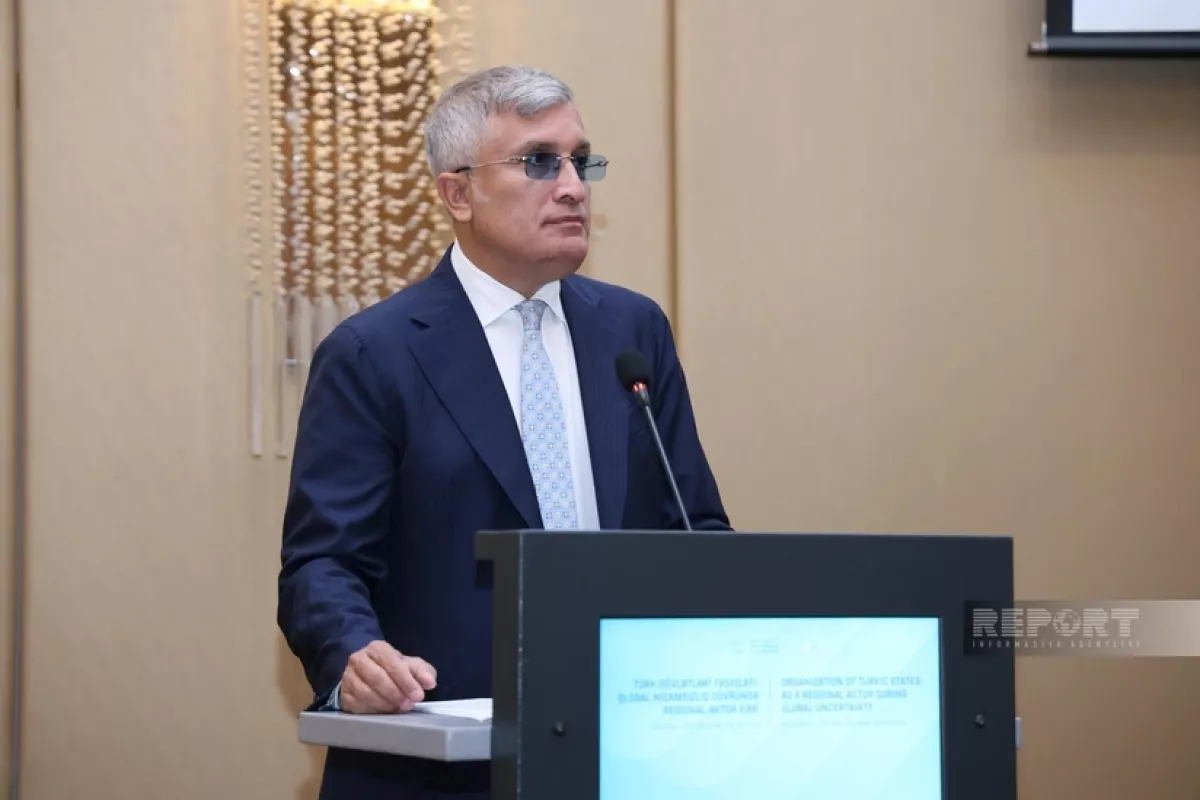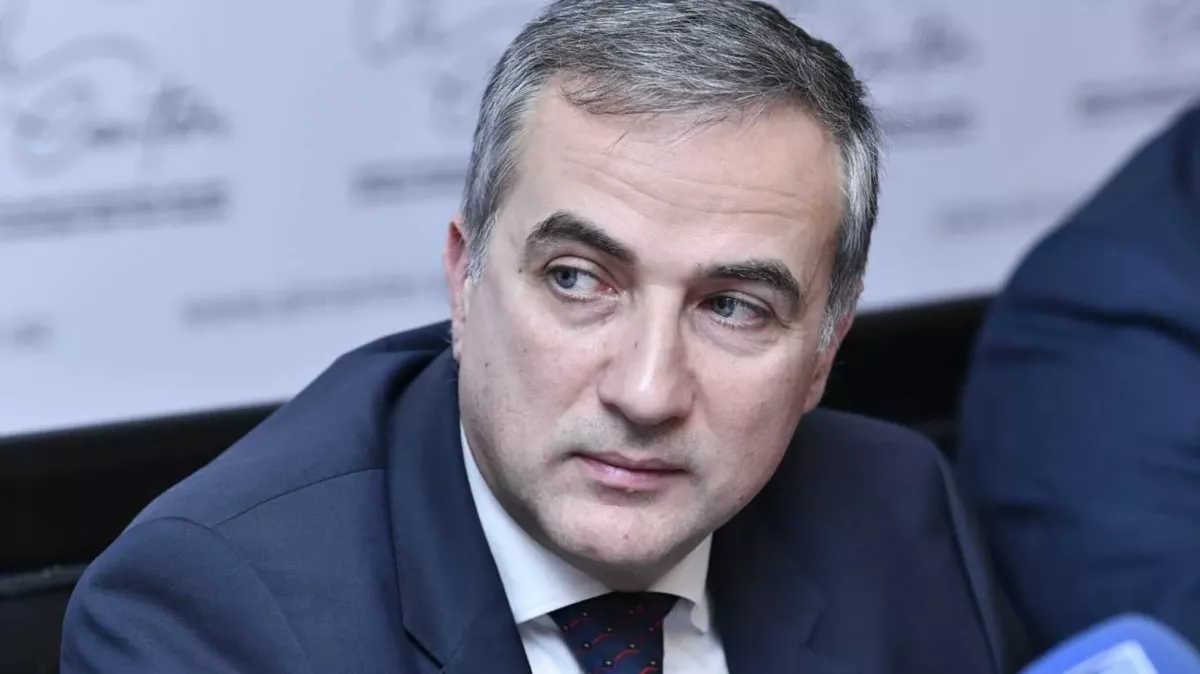Kazakh strategist: Negotiations between Baku and Yerevan guarantee peace and stability
Baku is hosting a conference of think tanks from member states of the Organisation of Turkic States (OTS), bringing together experts and officials to discuss the bloc’s role in today’s international system.
The event, held under the theme “The Organisation of Turkic States as a Regional Actor in an Era of Global Uncertainty”, focuses on the strategic challenges facing the OTS and the new opportunities for cooperation among its members.
Speaking at one of the sessions, Zhandos Shaimardanov, Director of the Kazakhstan Institute for Strategic Studies under the President of Kazakhstan, emphasised that the OTS is positioned to contribute significantly to global processes. He described the organisation as one that ensures peace and stability during a period of global uncertainty.
Shaimardanov also highlighted the ongoing negotiations between Azerbaijan and Armenia, noting their broader importance for the region. “This process, in addition to creating a common corridor, also guarantees peace and stability for us. As the borders open, the likelihood of conflicts and other negative developments decreases. We can call this the Turkic Corridor of Peace,” he said.

Azerbaijan’s role in the Turkic world was a central theme at the conference, with several speakers underlining its strategic importance. Ömer Kocaman, Deputy Secretary-General of the OTS, stressed that Azerbaijan has played a decisive role in the development of the organisation as a strong regional actor. “It is noteworthy that the founding document of our organisation — the Nakhchivan Declaration — was signed in Azerbaijan. Today, Azerbaijan serves as a bridge within the Turkic world,” he stated.
Kocaman also pointed to Azerbaijan’s forthcoming role as host of the next OTS summit. “On 6–7 October this year, the summit of the heads of state of the OTS will take place in the beautiful city of Gabala. I believe the discussions and ideas resulting from today’s conference will also contribute to the outcomes of the summit in Gabala,” he said.

The growing influence of the Organisation of Turkic States was further underlined by Farid Shafiyev, Chairman of the Board of the Centre of Analysis of International Relations (AIR Centre). He observed that in recent years, the OTS has steadily increased its regional weight. “The OTS serves peace and cooperation in the region. Within the organisation, the principles of cooperation and equality are upheld,” Shafiyev noted.
He added that while some international organisations are in urgent need of reform and display certain shortcomings, the OTS has the capacity to fill those gaps.
By Tamilla Hasanova








